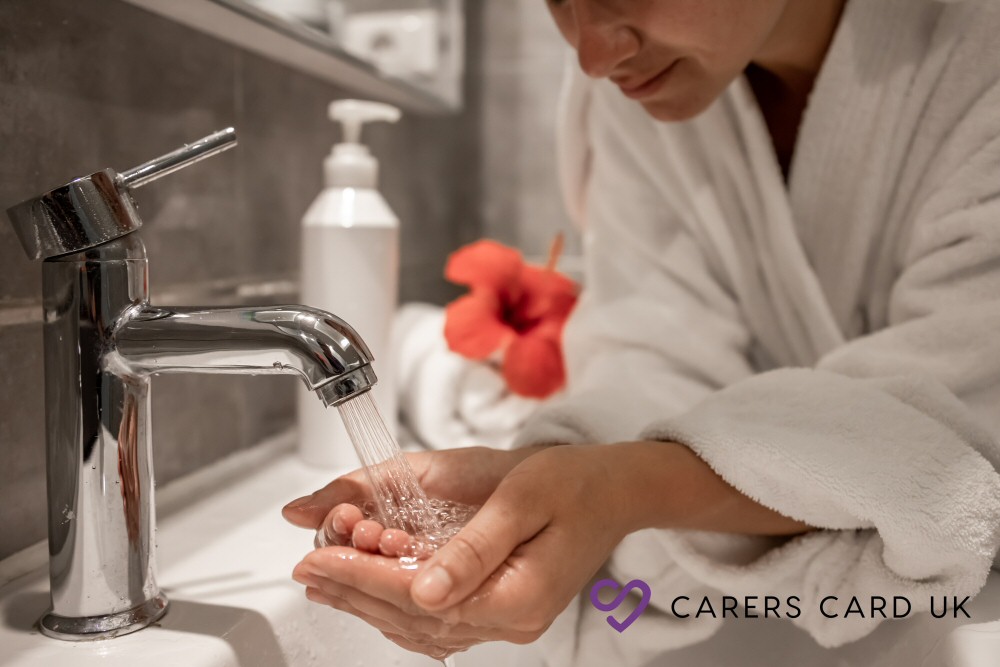The Significance of Good Hygiene in Caregiving
In the realm of caregiving, maintaining good hygiene for the person you care for is not merely about appearance—it's a fundamental aspect of their overall health, comfort, and sense of dignity. Hygiene practices encompass personal care routines that address cleanliness, grooming, and bodily health. In this article, we'll delve into the profound importance of good hygiene in caregiving and how it contributes to the physical, emotional, and social wellbeing of those under your care.

Prevention of Illness and Infection
Good hygiene practices are essential for preventing the spread of illness and infection. Regular handwashing, bathing, and oral hygiene help remove germs, bacteria, and viruses from the body, reducing the risk of respiratory infections, gastrointestinal illnesses, skin infections, and other contagious diseases. By prioritising good hygiene, you create a healthier environment and minimise the risk of illness for the person you care for and those around them.
Maintenance of Skin Health
Proper hygiene plays a crucial role in maintaining skin health and preventing skin problems such as infections, irritations, and pressure ulcers. Regular bathing, moisturising, and changing of clothing and bedding help keep the skin clean, hydrated, and free from irritants. Paying attention to areas prone to moisture and friction, such as underarms, groin, and skin folds, helps prevent fungal infections and skin breakdown. By promoting good hygiene, you help preserve the integrity of the skin and promote overall comfort and wellbeing.
Enhancement of Self-esteem and Dignity
Good hygiene is closely linked to self-esteem and dignity. Feeling clean, fresh, and well-groomed contributes to a positive self-image and sense of confidence. Maintaining good hygiene practices helps individuals feel more comfortable and confident in social interactions, enhancing their overall quality of life and sense of dignity. By supporting good hygiene, you affirm the inherent worth and dignity of the person you care for and help preserve their sense of identity and self-worth.
Promotion of Social Engagement
Personal hygiene directly impacts social interactions and relationships. Individuals who practice good hygiene are more likely to feel comfortable participating in social activities, attending events, and engaging in community life. Conversely, poor hygiene can lead to social isolation, stigma, and exclusion. By promoting good hygiene habits, you empower the person you care for to participate fully in social experiences, fostering connections, friendships, and a sense of belonging.
Management of Incontinence and Personal Care Needs
For individuals with incontinence or personal care needs, maintaining good hygiene is particularly important for preventing skin irritation, discomfort, and odor. Regular changing of absorbent products, thorough cleansing, and proper skin care help manage incontinence-related challenges and maintain skin integrity. Addressing incontinence and personal care needs with compassion, respect, and sensitivity contributes to the overall comfort and dignity of the person you care for.
Prevention of Dental and Oral Health Issues
Oral hygiene is a critical component of overall health and wellbeing. Regular brushing, flossing, and dental care help prevent tooth decay, gum disease, and oral infections. Poor oral hygiene can lead to dental pain, discomfort, and systemic health problems such as cardiovascular disease and respiratory infections. By promoting good oral hygiene practices, you support the person you care for in maintaining a healthy mouth, teeth, and gums, contributing to their overall wellbeing and quality of life.
Recognition of Changes in Health Status
Monitoring changes in hygiene habits can provide valuable insights into the person's health status and overall wellbeing. Changes in grooming routines, personal care habits, or appearance may indicate underlying health issues, cognitive changes, or emotional distress. By paying attention to subtle cues and changes in hygiene patterns, you can identify potential concerns early and intervene appropriately to address underlying needs or issues.
Encouragement of Independence and Autonomy
While providing assistance with hygiene tasks may be necessary at times, it's essential to promote independence and autonomy whenever possible. Encourage the person you care for to participate in their own personal care routines to the best of their ability, respecting their preferences, choices, and boundaries. Offer support, encouragement, and guidance as needed, fostering a sense of empowerment and self-reliance in daily activities.
In conclusion, good hygiene is a cornerstone of caregiving that encompasses physical health, emotional wellbeing, and social connectedness. By prioritising good hygiene practices, you promote the prevention of illness and infection, maintenance of skin health, enhancement of self-esteem and dignity, promotion of social engagement, management of incontinence and personal care needs, prevention of dental and oral health issues, recognition of changes in health status, and encouragement of independence and autonomy. Your commitment to supporting good hygiene reflects your dedication to the health, comfort, and dignity of the person you care for, enriching their lives and fostering a sense of wellbeing and fulfilment.
Posted: 22/09/2025
